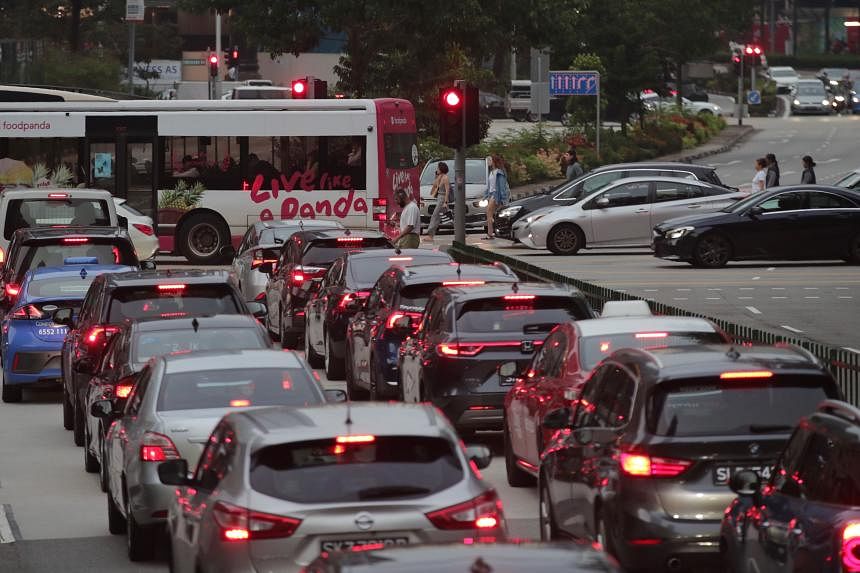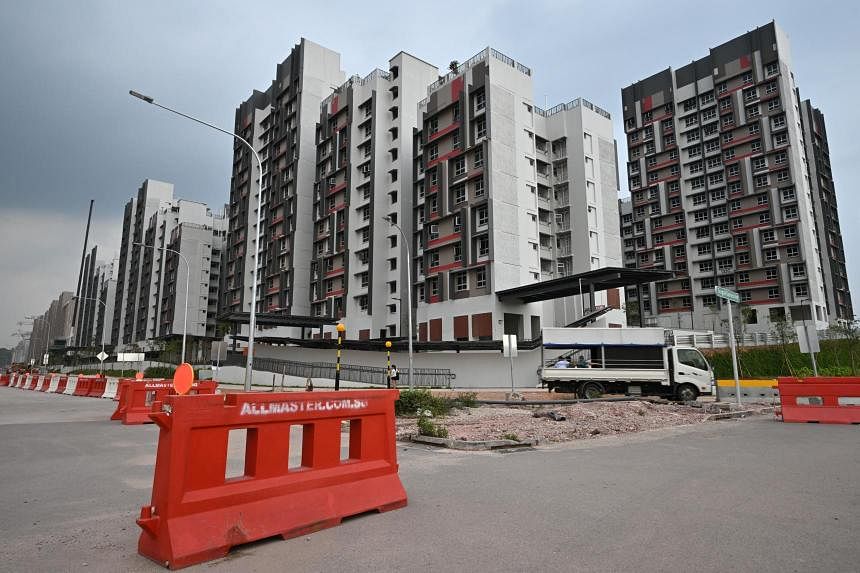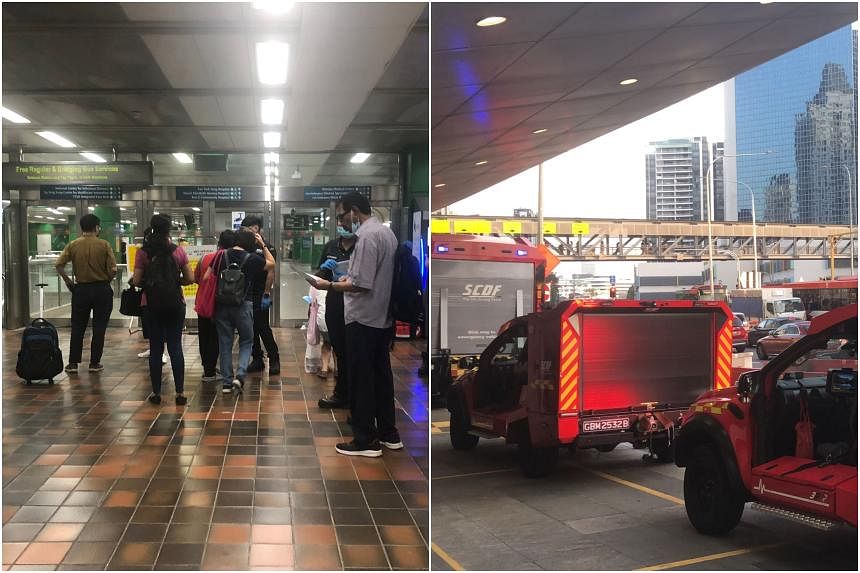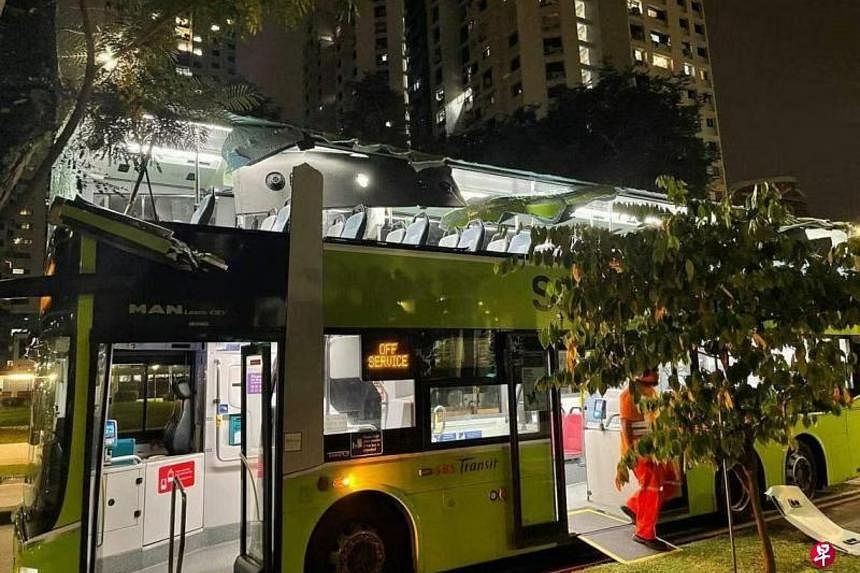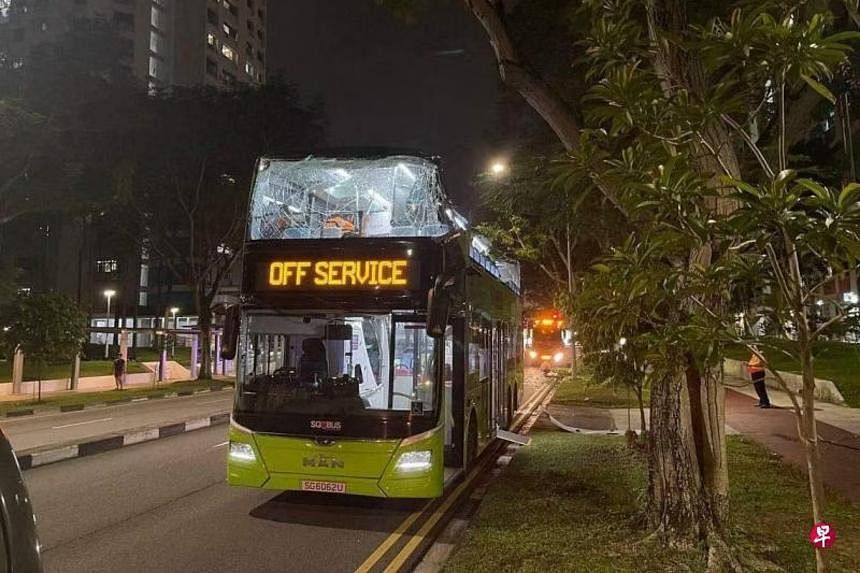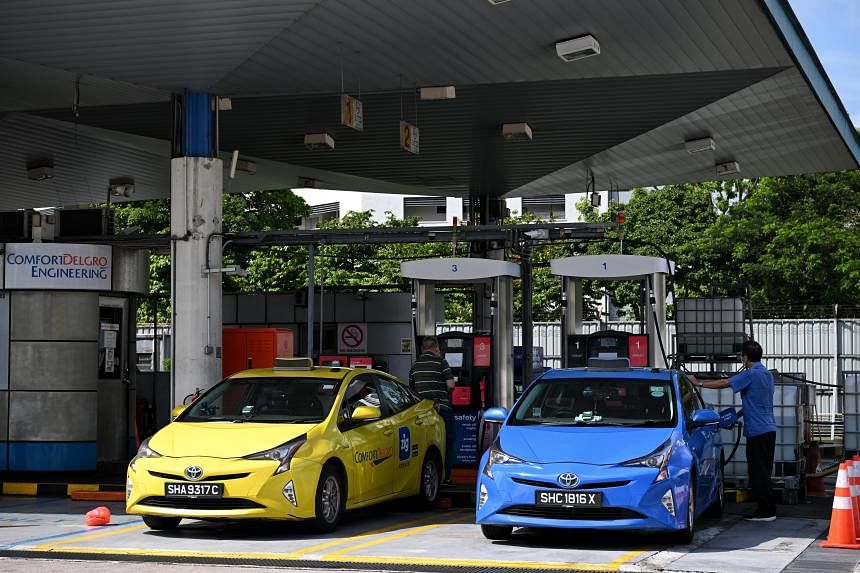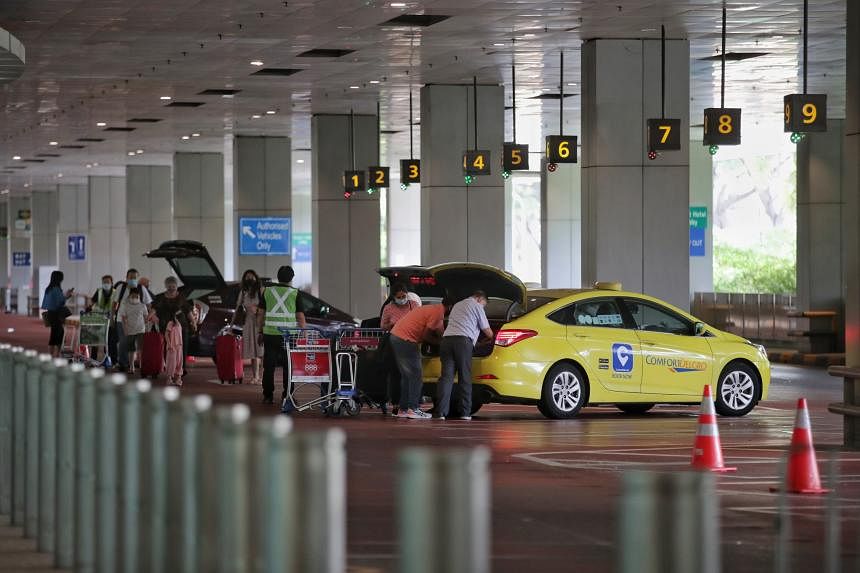- Joined
- Jul 25, 2008
- Messages
- 15,380
- Points
- 113
Car COE premiums hit new highs, Open category rises to $144,640
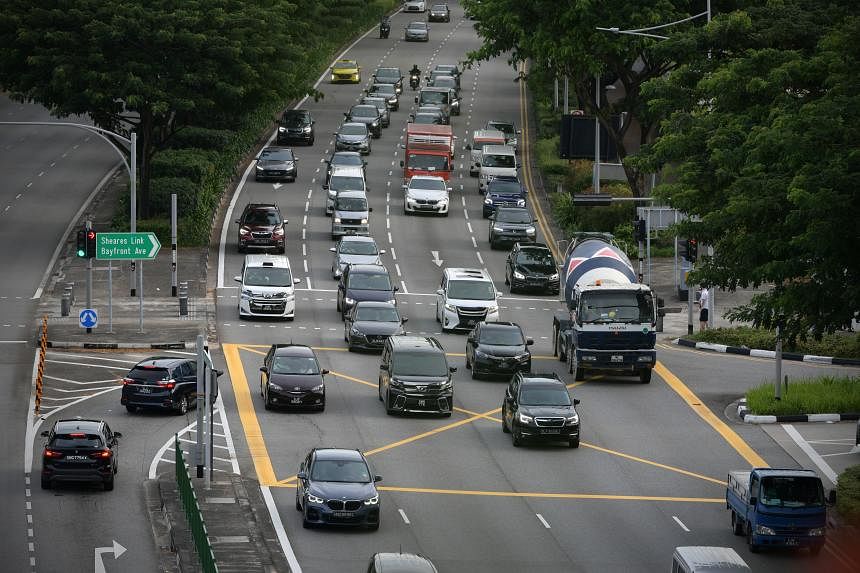
The COE premium for smaller cars set a new record of $105,000, while the COE premium for larger cars climbed to $140,889. PHOTO: ST FILE

Lee Nian Tjoe
Senior Transport Correspondent
SEP 20, 2023
SINGAPORE - The certificate of entitlement (COE) prices for cars and the Open category hit record highs on Wednesday, spurred by motor dealers rushing to meet year-end targets and take advantage of current tax rebates for electric cars.
The COE premium for cars with engines up to 1,600cc and 130bhp, as well as electric vehicles (EVs) up to 110 kilowatts, was 3.96 per cent higher at $105,000, up from $101,000 at the last tender exercise.
The previous high for smaller-car COE premiums was $103,721, set in the second tender exercise in April this year.
COE premiums for larger and more powerful cars as well as for the Open category set records for the fourth consecutive tender, both breaching the $140,000 mark for the first time.
At $140,889, the large-car COE premium was 4.45 per cent above the previous high of $134,889 set two weeks ago.
The premium for the Open category COE – which can be used for any vehicle type except motorcycles, but ends up being used mostly for bigger cars – also set an all-time high, at $144,640.
This was 5.58 per cent higher than the $137,000 record from the last tender exercise.
The commercial vehicle COE premium nudged up by 1.1 per cent to finish at $83,801, up from $82,889 before.
The COE premium for motorcycles was the only one that dipped. At $10,700, the price was 1.84 per cent lower than the $10,901 posted two weeks ago.
New highs have been set in all categories of COE in 2023, with the exception of motorcycles.
Some car brands had hosted road shows and dangled generous discounts to get more orders since the last tender.
There were 470 unsuccessful bids in total over the two car COE categories, slightly more than the 457 unsuccessful bids seen in the previous round.
A sizeable proportion of these bidders would return for the next tender to secure the needed COEs, suggesting that the upward pressure on prices is not expected to ease.
Mr Ng Choon Wee, group commercial director at Komoco Motors, attributed the high COE premiums to dealers who may be chasing after their year-end sales targets to qualify for incentives.
Calling the record COE premiums “absurd”, Mr Nicholas Wong, who is the general manager of Honda agent Kah Motor, said the surge is also driven by a sense of uncertainty for the new year.
Cars are expected to cost more in the new year. The EV Early Adoption Incentive, which gives rebates of up to $20,000 off vehicle taxes for EVs, ends on Dec 31 this year, and it is unclear what will happen to the scheme.
From Jan 1, 2024, the pollutant thresholds for private cars under the Vehicular Emissions Scheme (VES) will be tightened, though details of the revised VES have yet to be announced.
Motor traders say they are assuming that cars with pure internal combustion engines, as opposed to petrol-hybrids or EVs, will be downgraded to a less favourable band under the updated VES. This is expected to make such vehicles harder to sell in the new year as they would likely come with reduced rebates, or even incur higher penalties under the VES.
Associate Professor Walter Theseira, a transport economist at the Singapore University of Social Sciences, noted that the big swings in COE premiums, because of how the COE supply moves in 10-year cycles, is not ideal.
“A stable price would be better for the economy and better reflect the actual demand for car travel,” he said.
“Why should rental-fleet owners get a windfall just because they procured their fleet a few years ago?” he added, referring to how vehicles bought earlier when COE premiums were lower would be worth more at today’s COE prices.
Goldbell Corp board adviser Ng Lee Kwang said: “This COE situation is getting out of hand. This is not good for anybody.”
Mr Ng Lee Kwang, who also teaches transport topics as an adjunct lecturer at Nanyang Institute of Management, warns that cars registered with such expensive COEs would be difficult to sell in the used market when COE premiums eventually come down.
Mr Mohammad Iskandar Tobari, 51, is in no hurry to replace his five-year-old Subaru Forester, which he bought brand new.
The technician, whose 19-year-old daughter has just started taking driving lessons, said: “With car prices so high, I don’t know why she even wants to get a licence.”

